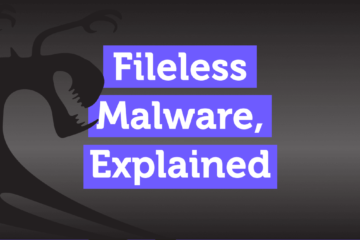Is EDR Worth it?
Are you wondering if investing in EDR is worth it for your organization? With cyberattacks on the rise, setting up advanced threat prevention has become crucial. And one of the key elements in this defense strategy is implementing a reliable endpoint detection and response system.
EDR Meaning in Cyber Security
Endpoint detection and response (EDR) is a cybersecurity procedure that focuses on collecting and analyzing data from an organization’s endpoints, such as end-user workstations and servers. The main goal is to detect and respond to security threats that traditional antivirus programs might miss, like zero-day and fileless malware attacks. Let’s dive deeper into understanding the meaning and importance of EDR solutions.
Endpoint detection and response – EDR meaning
The term “endpoint detection and response” refers to a system that gathers security threat-related data from endpoints to identify and respond to security breaches in real-time. The capabilities of an EDR system can vary depending on the implementation, but the overall focus remains on enhancing cybersecurity defenses.
What does EDR Stand for – EDR Meaning
EDR full form in cyber security – An EDR implementation can include:
- A dedicated tool;
- A component of a larger security system; or
- A combination of tools to achieve a common goal
Traditional security measures may not be sufficient against evolving cyber threats. EDR meaning involves data and behavioral analysis, making it effective against various threats like new malware, ransomware, and advanced persistent threats.

EDR meaning historical data can provide insights and remediation for zero-day threats, even without immediate mitigation. Active EDR meaning is considered a vital component of advanced threat defense in the cybersecurity landscape.
EDR meaning – How an Endpoint Detection and Response Solutions Work?
An endpoint refers to any device at the network’s edge, such as laptops, workstations, or servers. Hackers target endpoints to gain access to sensitive data or launch cyberattacks. EDR meaning involves installing agents on endpoints to monitor and enforce security policies, using behavioral heuristics to detect and prevent attacks.
Importance of Endpoint Detection and Response Solutions: What does EDR Stand For?
EDR solutions offer deeper insights into endpoints and enable faster response times compared to traditional security tools. They protect organizations from advanced threats like polymorphic malware, APTs, and phishing attacks. Some EDR solutions utilize AI and machine learning to detect and categorize new malware variants based on behavior.
Adoption of EDR Solutions Globally
The global Endpoint Detection and Response (EDR) Solutions market is projected to grow significantly in the coming years, indicating a growing demand for advanced security solutions. EDR solutions are essential for organizations and managed security service providers to combat sophisticated threats effectively.
EDR meaning – The Requirement for a Reliable EDR Solution
An EDR solution enhances an organization’s defense against cyber threats by providing real-time insights and threat detection capabilities. EDRs are crucial in mitigating security vulnerabilities and maintaining a strong defense posture against cyberattacks.
EDR meaning – The Ultimate EDR Solution with Open EDR by Xcitium
Open EDR by Xcitium is a powerful, open-source endpoint detection and response solution that offers real-time event correlation and threat analysis. This Active EDR platform is designed to help organizations of all sizes combat cyber threats effectively. Visit for more information on EDR meaning and the services provided by EDR solutions.



